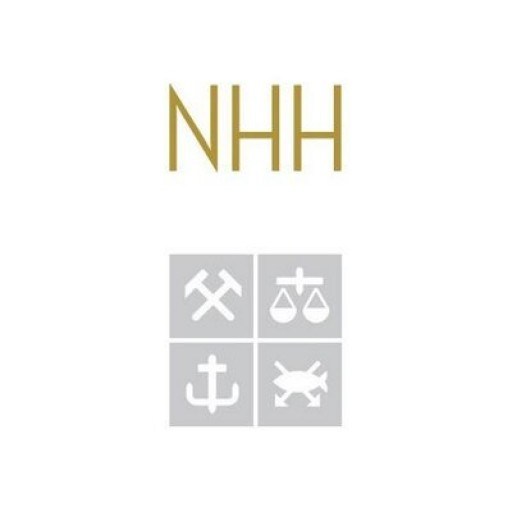Photos of university / #nhh_no
The Bachelor's Programme in Economics at the Norwegian School of Economics (NHH) offers a comprehensive and rigorous foundation in economic theory, quantitative methods, and analytical skills necessary for understanding complex market dynamics and economic phenomena. The programme is designed to equip students with a solid understanding of microeconomics, macroeconomics, and related disciplines, preparing them for careers in business, government, and international organizations. Students will engage in a variety of coursework that covers areas such as financial economics, international economics, and sustainable development, ensuring a broad and versatile skill set. The curriculum emphasizes critical thinking, problem-solving, and the application of economic models to real-world issues. Throughout the programme, students have the opportunity to develop their analytical capabilities through case studies, group projects, and internships, fostering teamwork and practical insight. The programme also encourages international exposure and intercultural competence, with options for exchange studies and collaborations with other leading institutions. Graduates from the Bachelor's in Economics at NHH are well-prepared for immediate entry into the workforce or for further studies at the master's level. The programme's strong academic reputation, combined with the university’s close ties to the business community, offers students valuable networking opportunities and a competitive edge in the global job market. With a focus on sustainability and responsible economic analysis, the programme ensures graduates are equipped to contribute ethically and effectively to societal and economic development. The programme is taught in English and is recognized for its high standards of academic excellence, innovative teaching methods, and commitment to student success.
The Bachelor of Economics programme at the Norwegian School of Economics (NHH) offers a comprehensive curriculum designed to equip students with a solid foundation in economic theory, quantitative methods, and business practices. Throughout the programme, students will explore core areas such as microeconomics, macroeconomics, finance, management, and marketing, gaining a deep understanding of how economic principles apply in real-world situations. The programme emphasizes analytical skills, critical thinking, and problem-solving abilities, preparing graduates for diverse careers within the private and public sectors, as well as for advanced studies.
In the first year, students are introduced to foundational concepts in economics and business administration, focusing on developing analytical tools and understanding economic processes at both individual and societal levels. Courses cover introductory microeconomics and macroeconomics, quantitative methods, and basic management principles. These classes lay the groundwork for more specialized topics explored in later years.
As students progress into the second and third years, they have the opportunity to deepen their knowledge in areas such as corporate finance, international economics, strategic management, and marketing. The programme also offers elective courses that allow students to tailor their education according to personal interests and career aspirations. Practical skills are further developed through case studies, group projects, and internships, fostering a real-world understanding of economic and business challenges.
A distinctive feature of the programme is its focus on sustainability and responsible management, ensuring that students are prepared to address contemporary economic issues with an ethical perspective. The curriculum encourages interdisciplinary thinking and promotes a global outlook, preparing students to operate effectively in international markets.
Students also have access to a variety of support services, including career advisory, networking opportunities, and exchanges with partner universities worldwide. The programme's strong links with industry and government provide students with valuable insights and internship opportunities, facilitating a smooth transition from academic life to professional careers.
Graduates of the Bachelor of Economics at NHH are well-equipped to pursue further education, such as master's degree programmes in economics, finance, or management. They are also prepared for roles such as analysts, consultants, financial advisors, or policy makers. Overall, the programme aims to develop responsible, innovative, and analytical graduates ready to contribute to economic development and solve complex societal challenges.
The Bachelor's degree program in Economics at the Norwegian School of Economics (NHH) offers several financing options for both Norwegian and international students. Tuition fees for international students are specified annually and are set by the university; currently, the tuition fee for non-EU/EEA students is approximately NOK 95,000 per year, payable in full at the start of each academic year. Norwegian and EU/EEA students typically do not pay tuition fees, as higher education in Norway is publicly funded. However, students are responsible for covering living expenses, which include accommodation, food, transportation, textbooks, and personal costs. The estimated living costs in Bergen, where NHH is located, amount to approximately NOK 120,000 to NOK 150,000 per year.
Students have access to various financial aid resources. Norwegian students may apply for student loans and grants from the Norwegian State Educational Loan Fund (Lånekassen), which provides financial support based on eligibility criteria. International students are generally responsible for funding their studies themselves but may explore scholarships offered by NHH or external organizations. NHH offers several merit-based scholarships for international students, covering partial or full tuition fees, but competition is intense. Additionally, students often seek part-time employment opportunities in Bergen to support their expenses; job opportunities are available in the city, and students can work up to 20 hours per week during the semester in accordance with Norwegian regulations.
Further financial support can be obtained through private sponsorships, scholarships from home countries, or educational funds. Students are advised to prepare a comprehensive budget plan to cover tuition, living costs, travel expenses, insurance, and personal expenses. It is important to note that students are responsible for ensuring they have adequate funding throughout their studies. NHH provides information and advice on financial planning, and prospective students are encouraged to contact the admissions office for guidance on available financial aid options and application procedures. Overall, while tuition costs are minimal or nonexistent for Norwegian residents, international students should plan for significant living expenses and explore available scholarships and part-time job opportunities to finance their education effectively.
The Bachelor's programme in Economics at the Norwegian School of Economics (NHH) provides students with a comprehensive education in economic theory, quantitative methods, and practical analysis. The programme aims to develop students' understanding of how markets operate, the role of economic policies, and the functioning of the global economy. Throughout the three-year course, students gain foundational knowledge in microeconomics and macroeconomics, along with specialized courses such as international economics, financial economics, and economic policy. Emphasis is placed on analytical skills, critical thinking, and the ability to apply economic principles to real-world issues.
NHH's Economics programme includes a combination of lectures, seminars, group work, and project assignments, fostering collaboration and communication skills. Students are encouraged to engage in case studies and internships to gain practical experience and insight into contemporary economic challenges. The programme also offers opportunities for specializations in fields such as financial markets, international business, and policy analysis, enabling students to tailor their education according to their interests and career goals.
The curriculum is designed to prepare graduates for diverse career paths, including roles in finance, consulting, governmental agencies, international organizations, and research institutions. The programme's focus on rigorous quantitative methods and data analysis equips students with valuable skills in statistical software and econometrics, which are highly regarded in the job market. As part of their studies, students may also participate in exchange programmes and additional courses at partner universities worldwide, broadening their global perspective.
NHH’s strong links to the business community and extensive alumni network provide valuable networking opportunities and insights into the job market. The faculty comprises experienced researchers and practitioners dedicated to academic excellence and student development. Graduates of the Economics Bachelor's programme at NHH are well-prepared to continue their studies at the master's level, both at NHH and internationally, or to enter the workforce directly, where they can contribute with sound economic analysis and strategic insights. The programme is continually updated to reflect the latest developments in economic research and policy, ensuring that students receive an education that is both current and forward-looking.










